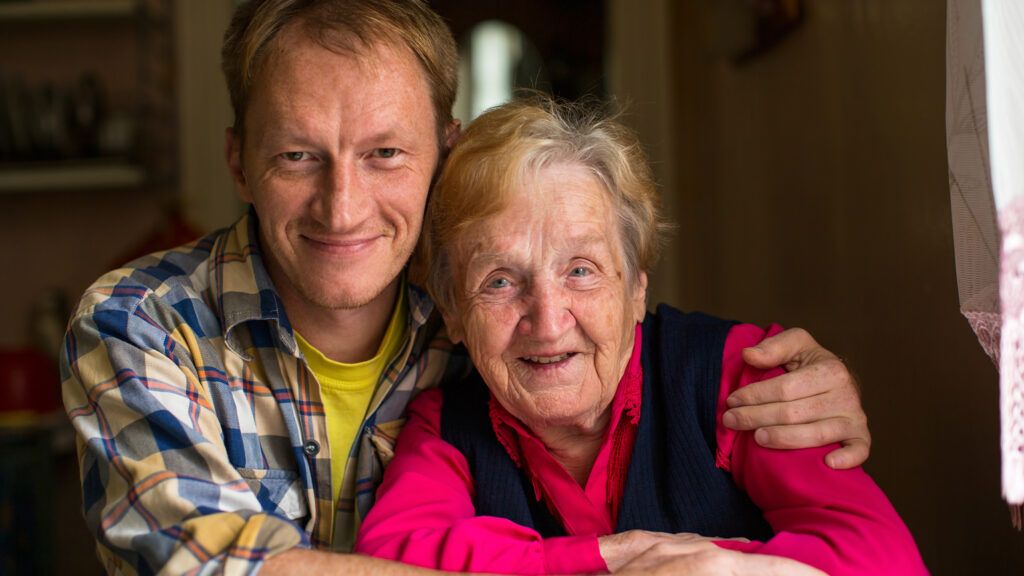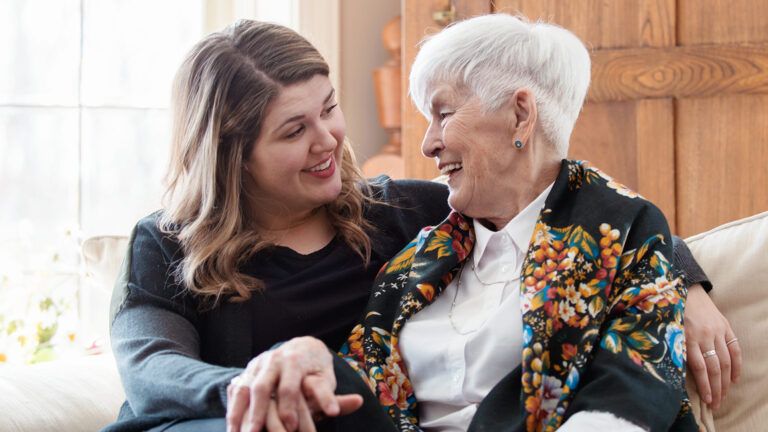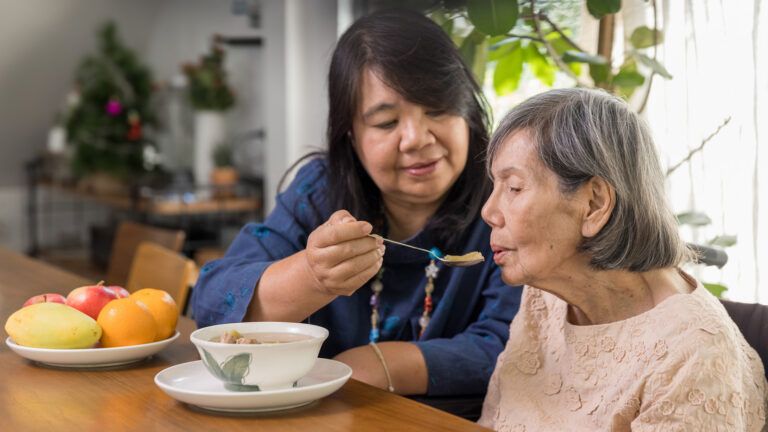Lisa Weitzman, LISW-S, is the BRI Care Consultation™ Manager of Business Development at Benjamin Rose Institute on Aging
Do you bristle when someone brings up the subject of care for older adults? Does it hit too close to home? Do you resist signs that your loved one is aging and may need your caregiving help? You may feel that it’s too soon for you to step into that role—that you’re not “there yet.” Maybe you believe that you’ll never be “there.” If so, what could be standing in your way?
Although the reality of your loved one’s aging can be hard to accept, know that you don’t have to go it without support. Numerous online resources can help ease you into the caregiving role. You can also turn to your community or to employers for planning guidance. Advertisements may have conditioned you to see aging as the plague, and enticed you with lotions, potions and treatments to help you deny – if not defy – it. Seen from this vantage point, it can be especially difficult to accept that your loved one is “there” in regards to needing care, or that you are “there” in terms of needing to take on the responsibility for this care.
Although aging is a fact of life, talking about it can bring up uncomfortable emotions. Maybe you avoid moving forward with planning because you’re afraid that the very act of doing so will make your loved one get there faster. Planning can be a joy when it comes to an event like a wedding or the birth of a child. But when it comes to deciding how to handle care for your older loved one, you may go into avoidance mode. You want to be ready, but, in the moment, it feels much easier to “cross that bridge” when you come to it.
What could be behind your resistance? It could simply be fear. Maybe you find it difficult to face the unknown or to feel suddenly vulnerable. You may be overly concerned with what people think—or with what you think they think. Perhaps you have a belief that admitting to a loved one’s challenges will expose you as inadequate or as having failed to provide the level of care he or she needs. It could be that you’re afraid of experiencing sadness and loss. It’s natural to want to avoid being hurt and to feel like walking away. Yet that may be the very opposite of what the situation requires. As writer Sonya Derian states: “You think you need to wait until you’re more prepared, knowledgeable, financially savvy, confident, secure…to take action. But then you never get to that place and never take the action. Then [time passes] and you’re still talking about it, feeling ‘not ready yet’.”
Your resistance may come down to a fear of change. The change could involve finding a new living arrangement for your loved one, or maybe the change is due to accepting your evolving role in his or her life. Whatever it is, be it tangible or intangible, behavioral or emotional, it can bring up insecurities, trigger memories of previous negative experiences centered around change and make you feel vulnerable and even out of control. According to research, “the brain prefers predictable negative consequences rather than uncertain outcomes.” Thus, resistance—whether it’s manifested in denial, in a focus on minor issues rather than the big picture, or in an unwillingness to engage in the conversation—is a way for the brain to protect itself from a reality it is not yet able to process.
While resistance provides stability, predictability, security and comfort, it can also work against you. It can prevent you from connecting with others and from getting the support and guidance that you need. Resistance may cause you to spend energy reinforcing old stories rather than on finding solutions to current problems. It may allow you to cherry-pick the reference points that reinforce the story you want to tell, while enabling you to ignore the rest of the narrative. Ultimately, then, resistance may not protect you; in fact, it may actually cause you to act against your own best interests.
So do you feel, you’re not “there yet” or that you’re not there, yet?” The comma makes a difference. The first statement indicates stagnation, while the second indicates progress. The comma is the difference between denial or resistance and a growth mindset, which prioritizes resiliency and the process of change. The person who says, “I’m not there yet,” is not mentally prepared to assume or admit to the role of family caregiver and may be blinded to the reality of the situation. The person who says, “I’m not there, yet,” accepts that caregiving is on the horizon. This is someone who recognizes the need to establish resources and connections in order to be efficient and effective in planning care when the time arrives. It is someone who is prepared in every way possible for the new role, but who also recognizes that his or her loved one does not need caregiving support at this point. The “no comma” people take action only when confronted with a crisis. The “comma” people, on the other hand, understand the value of developing a realistic plan of care, even before it is needed. When the time arrives, they will not have to scramble for resources in a panic. They have already worked to minimize the likelihood of a crisis.
Where do you see yourself? Are you a “comma” or a “no comma” person? Are you ready to move forward with the confidence that comes from knowing you have a solid plan in place for your loved one? Remember, support is available. All you have to do is reach out.






